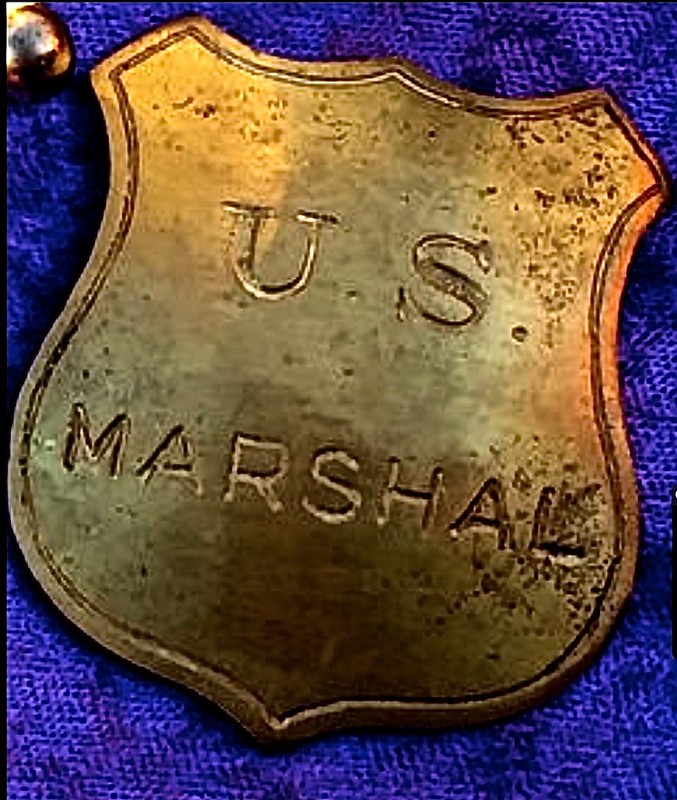A sheriff is a county law enforcement officer, while a marshal is a federal law enforcement officer, often involved in federal court security and fugitive apprehension.
TL;DR Sheriff Vs. Marshall
Sheriffs are typically elected officials who enforce state laws at the county level. They have jurisdiction over a specific county and are responsible for operating the local jail, serving legal documents like warrants and subpoenas, providing court security, and managing civil processes such as evictions or property seizures.
Marshals are federal law enforcement officers appointed by the President. They work for agencies like the United States Marshals Service (USMS) and primarily focus on enforcing federal laws across different states or jurisdictions. Their duties include apprehending fugitives, protecting witnesses, transporting prisoners between courts or correctional facilities, and executing federal arrest warrants.
Who is a Sheriff?

The role of a sheriff dates back centuries, rooted in the rich history of law enforcement. In the United States, sheriffs are appointed or elected officials responsible for maintaining peace and order within their jurisdiction. But being a sheriff isn’t just about donning a badge and enforcing the law; it’s also about being an integral part of the community.
Sheriffs often serve as the face of local law enforcement, working closely with their communities to foster trust and understanding. They handle various tasks such as serving warrants, providing court security, managing county jails, and even conducting search and rescue operations in some cases.
One key aspect that sets sheriffs apart is their close connection to county government. Unlike other law enforcement agencies that fall under city or state control, sheriffs typically operate at the county level. This means they have unique authority over rural areas where municipal police departments may not reach.
Additionally, sheriffs have broad responsibilities when it comes to public safety. They collaborate with other agencies during emergencies or natural disasters to ensure swift response and effective coordination. Sheriffs often work hand-in-hand with federal authorities on matters such as immigration enforcement or drug interdiction too.
Being a sheriff requires more than just physical strength; it demands exceptional leadership skills and strong moral character. A successful sheriff must be able to navigate complex situations while upholding justice impartially – treating all individuals equally under the law.
Who is a Marshall?

A Marshal, also known as a U.S. Marshal, is a law enforcement officer who plays a crucial role in maintaining order and upholding the law at the federal level within the United States. Unlike sheriffs, marshals operate on a national scale rather than at the state or local level.
Marshals are appointed by the President of the United States and serve under the Department of Justice. They can be found working in various branches such as fugitive investigations, witness protection programs, judicial security, and prisoner transport.
One of their primary responsibilities is to apprehend and detain fugitives from justice. They work tirelessly to track down individuals who have violated federal laws and bring them to justice.
In addition to pursuing fugitives, marshals also provide protection for federal judges and other court officials. This duty involves ensuring courtroom security during trials and transporting prisoners safely between facilities.
Moreover, marshals often assist other law enforcement agencies when needed by providing expertise in areas such as tactical operations or intelligence gathering.
Marshals play an indispensable role in enforcing federal laws across different jurisdictions within the United States. Their duties encompass everything from tracking down fugitives to protecting key figures within the legal system.
Sheriff Vs. Marshall – Key differences
| Aspect | Sheriff | Marshal |
|---|---|---|
| Jurisdiction | County law enforcement officer | Federal law enforcement officer |
| Jurisdiction Type | Works within a specific county | Works across federal jurisdictions |
| Legal Authority | Elected or appointed at the county level | Appointed by the President, confirmed by the Senate |
| Primary Duties | Enforces state and county laws, serves legal documents | Provides security in federal courts, apprehends federal fugitives |
| Agency | Typically part of the county's law enforcement agency | Part of the U.S. Department of Justice, often U.S. Marshals Service |
| Fugitive Pursuit | Pursues county-level fugitives | Pursues federal fugitives and apprehends them |
| Court Security | May provide courthouse security | Primarily responsible for federal courthouse security |
| Specialization | Broad law enforcement authority within the county | Specialized in federal law enforcement and judicial security |
| Apprehension Powers | Limited to county boundaries | Can operate across state lines and internationally for federal cases |
| Legal Process Service | Often serves civil and legal documents for the county | May serve federal legal documents and warrants |
Image Credits
Featured Image By – Illumination Marketing on Unsplash
Image 1 By – Alina Rubo on Unsplash
Image 2 By – Chic Bee on Flckr









